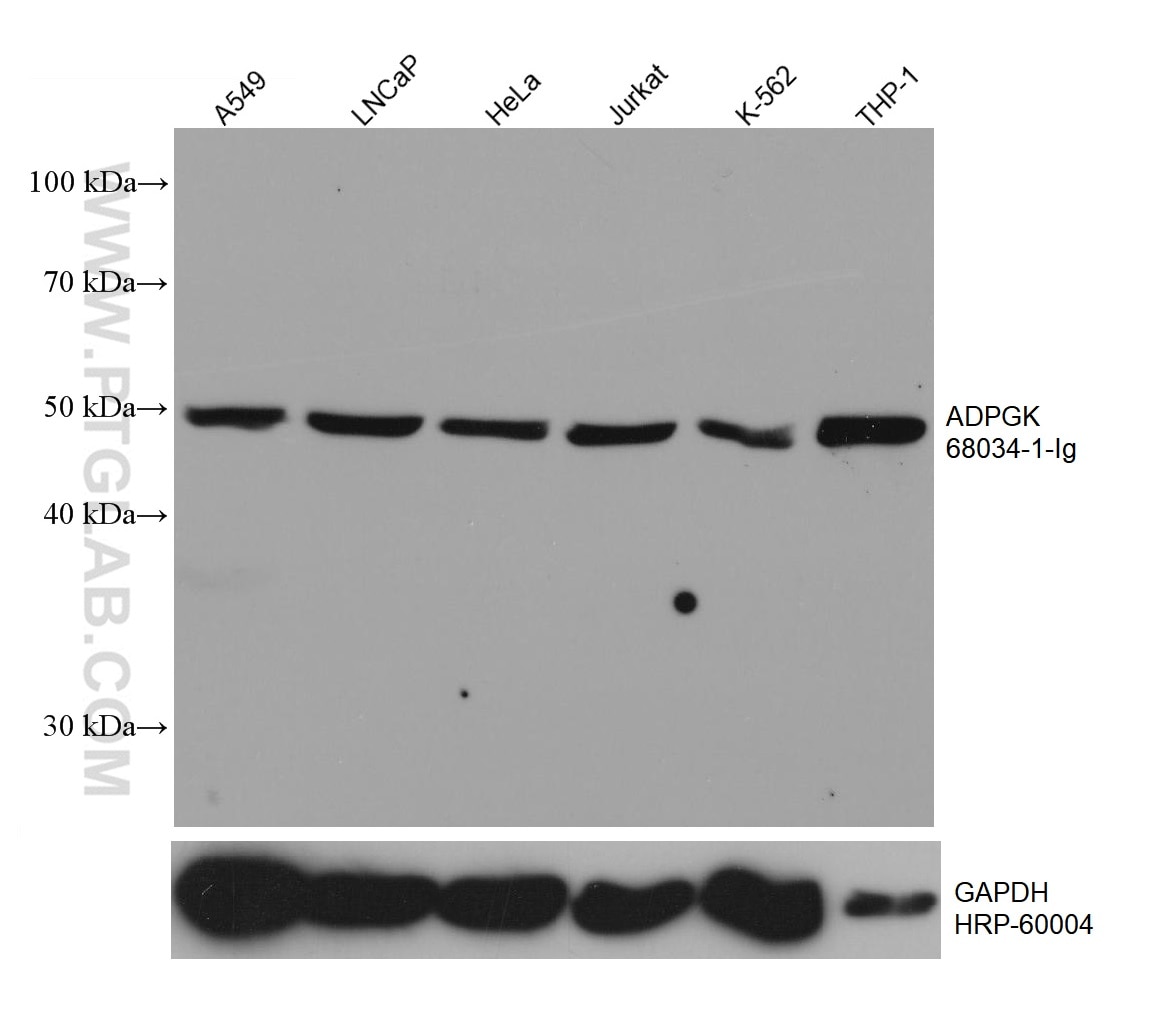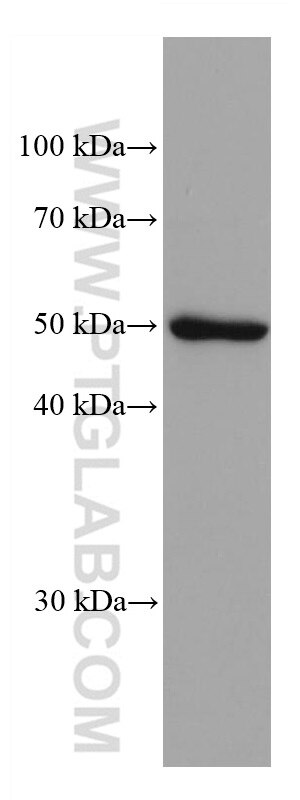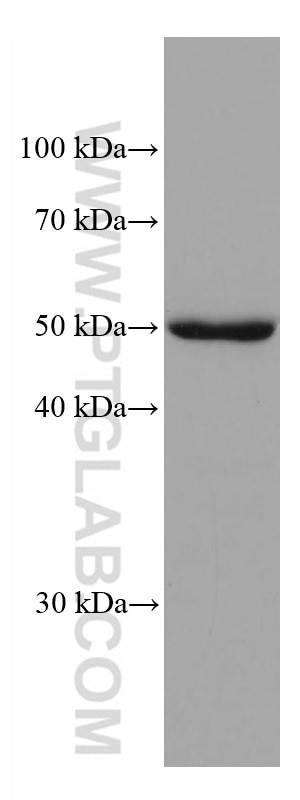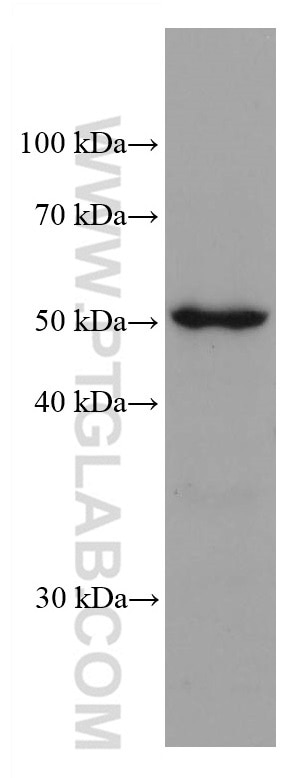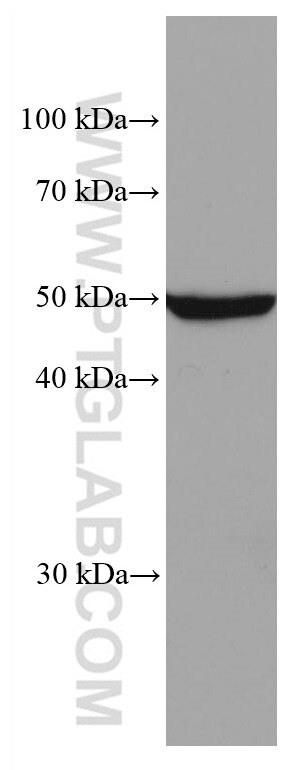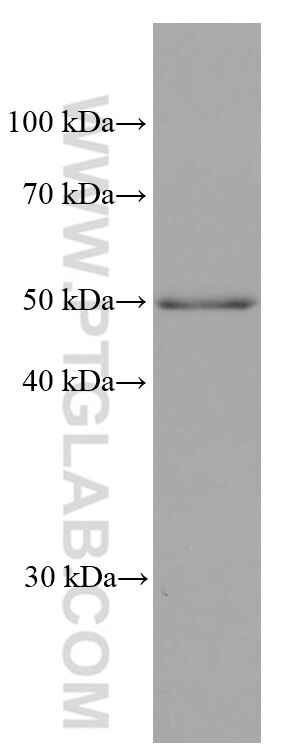Tested Applications
| Positive WB detected in | A549 cells, HeLa cells, human placenta tissue, LNCaP cells, THP-1 cells, Jurkat cells, K-562 cells |
Recommended dilution
| Application | Dilution |
|---|---|
| Western Blot (WB) | WB : 1:2000-1:10000 |
| It is recommended that this reagent should be titrated in each testing system to obtain optimal results. | |
| Sample-dependent, Check data in validation data gallery. | |
Product Information
68034-1-Ig targets ADPGK in WB, ELISA applications and shows reactivity with Human samples.
| Tested Reactivity | Human |
| Host / Isotype | Mouse / IgG1 |
| Class | Monoclonal |
| Type | Antibody |
| Immunogen |
CatNo: Ag31242 Product name: Recombinant human ADPGK protein Source: e coli.-derived, PET28a Tag: 6*His Domain: 362-497 aa of BC006112 Sequence: ILKEHGRSKSRASDLTRIHFHTLVYHILATVDGHWANQLAAVAAGARVAGTQACATETIDTSRVSLRAPQEFMTSHSEAGSRIVLNPNKPVVEWHREGISFHFTPVLVCKDPIRTVGLGDAISAEGLFYSEVHPHY Predict reactive species |
| Full Name | ADP-dependent glucokinase |
| Calculated Molecular Weight | 497 aa, 54 kDa |
| Observed Molecular Weight | 51 kDa |
| GenBank Accession Number | BC006112 |
| Gene Symbol | ADPGK |
| Gene ID (NCBI) | 83440 |
| RRID | AB_2918776 |
| Conjugate | Unconjugated |
| Form | Liquid |
| Purification Method | Protein G purification |
| UNIPROT ID | Q9BRR6 |
| Storage Buffer | PBS with 0.02% sodium azide and 50% glycerol, pH 7.3. |
| Storage Conditions | Store at -20°C. Stable for one year after shipment. Aliquoting is unnecessary for -20oC storage. 20ul sizes contain 0.1% BSA. |
Background Information
ADP-dependent glucokinase (ADPGK) has frst been described 1994 in hyperthermophilic archaea as a novel glucose-phosphorylating enzyme dependent on ADP (adenosine diphosphate) instead of ATP (adenosine triphosphate). Highest ADPGK expression is found in immune cells of both myeloid and lymphoid lineages. Catalyzes the phosphorylation of D-glucose to D-glucose 6-phosphate using ADP as the phosphate donor. GDP and CDP can replace ADP, but with reduced efficiency (By similarity).
Protocols
| Product Specific Protocols | |
|---|---|
| WB protocol for ADPGK antibody 68034-1-Ig | Download protocol |
| Standard Protocols | |
|---|---|
| Click here to view our Standard Protocols |

